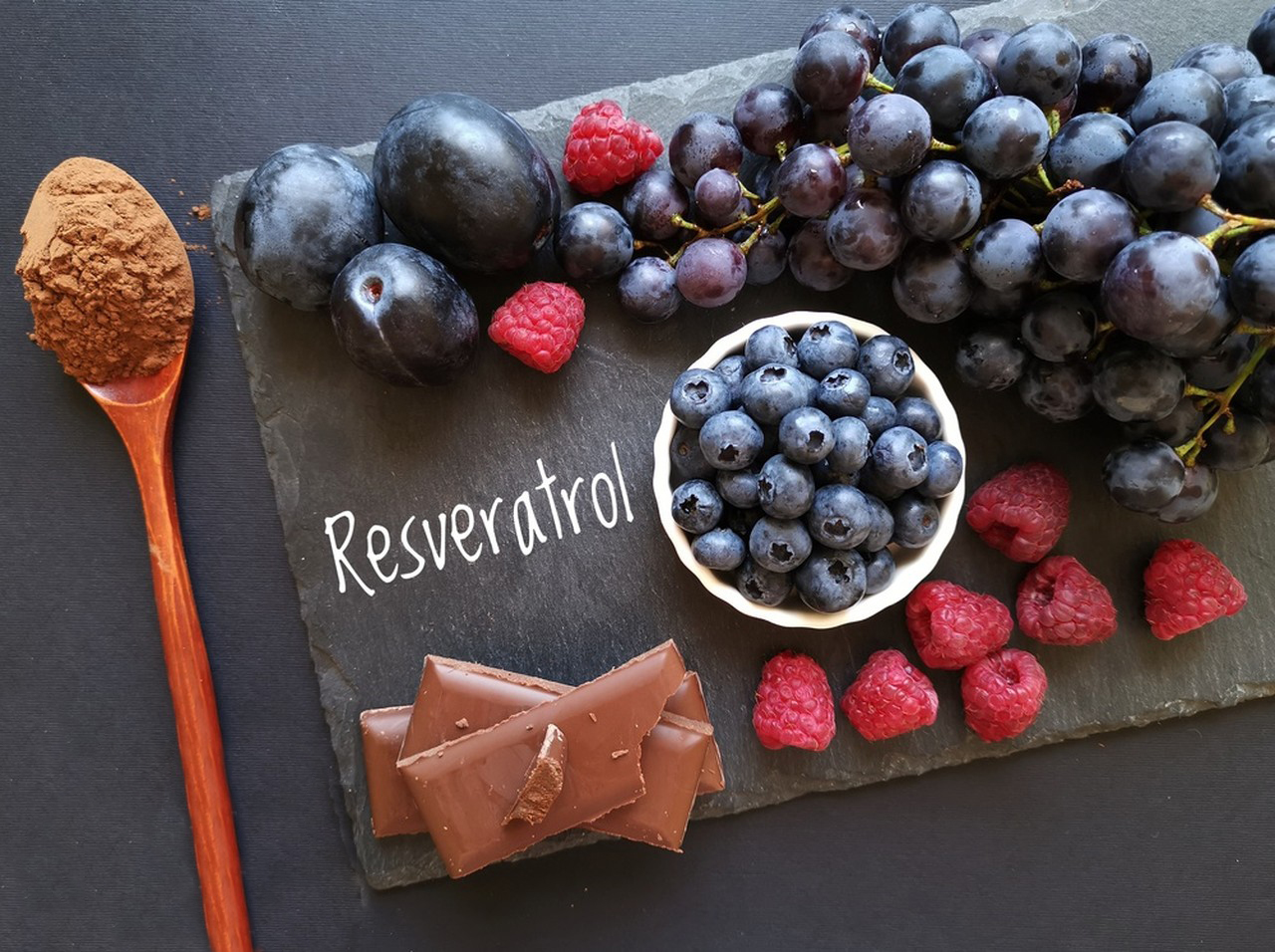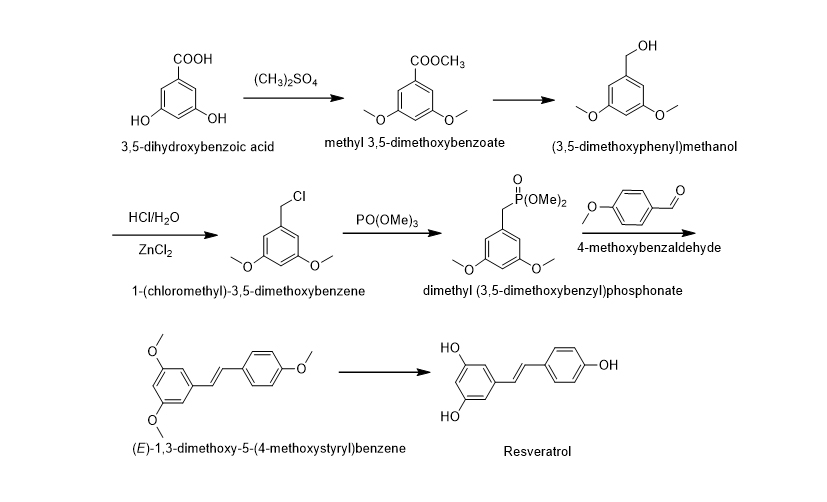Resveratrol is a naturally occurring compound that belongs to a class of polyphenolic compounds known as stilbenes. It is found in various plants, including grapes, red wine, peanuts, and certain berries. Resveratrol has received attention in recent years due to its potential health benefits and its presence in red wine, which has been associated with the “French Paradox” – the observation that despite consuming a diet rich in saturated fats, the French have relatively low rates of heart disease, which some have attributed to their red wine consumption.
Some potential benefits and properties of resveratrol include:
Antioxidant Properties: Resveratrol is known for its antioxidant activity, which means it can help protect cells from oxidative damage caused by free radicals. This property may have potential health benefits, such as reducing the risk of various chronic diseases.

Cardiovascular Health: Some studies have suggested that resveratrol may help improve heart health by reducing inflammation, lowering blood pressure, and improving cholesterol levels. It is thought to have a role in promoting healthy blood vessels.
Anti-Inflammatory Effects: Resveratrol has anti-inflammatory properties that may be beneficial for conditions involving chronic inflammation, such as arthritis.
Potential Anti-Cancer Effects: Some research has explored the potential anti-cancer properties of resveratrol, particularly in animal and cell studies. It is thought to have a role in inhibiting the growth of cancer cells.
Longevity: Resveratrol has gained attention for its potential role in extending lifespan and promoting longevity, particularly in laboratory experiments with certain organisms. However, its impact on human lifespan remains a subject of ongoing research.
It’s important to note that while there is evidence to support these potential health benefits in laboratory and animal studies, the effects of resveratrol in humans are still the subject of ongoing research and debate. Moreover, the concentration of resveratrol in natural sources like red wine is relatively low, so taking it in supplement form may be necessary to achieve therapeutic levels, but the safety and effectiveness of long-term supplementation are still being studied. Always consult with a healthcare professional before starting any new dietary supplement.
How to use Resveratrol?
Resveratrol is a natural compound found in various plants, including grapes, red wine, and certain berries. It has gained attention for its potential health benefits, particularly its antioxidant and anti-inflammatory properties. While more research is needed to fully understand its effects, some people use resveratrol as a dietary supplement. Here’s how to use it:
Consult a Healthcare Professional: Before adding any dietary supplement, including resveratrol, to your routine, it’s essential to consult with a healthcare professional, such as a doctor or registered dietitian. They can provide guidance based on your specific health needs and any potential interactions with other medications or supplements you may be taking.
Select a High-Quality Supplement: If you and your healthcare professional decide that resveratrol supplementation is appropriate for you, choose a reputable brand that offers a high-quality product. Look for supplements that have been third-party tested for purity and potency.
Follow the Recommended Dosage: The appropriate dosage of resveratrol can vary depending on your specific health goals and the product you choose. Always follow the manufacturer’s recommended dosage instructions. Do not exceed the recommended dose without consulting a healthcare professional.
Consider Timing: Some experts suggest taking resveratrol with a meal to enhance absorption. However, always follow the product’s specific instructions for the best timing.

Be Patient: It’s important to note that resveratrol may not produce immediate, noticeable effects. Many of its potential benefits are long-term and may require consistent use over time.
Monitor for Side Effects: While resveratrol is generally considered safe when used as directed, some individuals may experience side effects, such as digestive issues. If you experience any adverse reactions, discontinue use and consult your healthcare professional.
Diet and Lifestyle: Remember that supplements should not replace a healthy diet and lifestyle. A balanced diet rich in fruits, vegetables, and whole grains is a better source of antioxidants like resveratrol than supplements. Regular exercise and other healthy habits are also essential for overall health.
Know Its Limits: Resveratrol is not a miracle cure, and its health benefits are still being researched. It should not be used as a sole treatment for any medical condition. Instead, it should be considered as part of a broader approach to maintaining good health.
Stay Informed: As research on resveratrol continues, stay informed about the latest findings and potential benefits or risks associated with its use. New information may lead to adjustments in recommended dosages or usage guidelines.
In summary, if you’re interested in using resveratrol as a dietary supplement, it’s essential to do so with caution and under the guidance of a healthcare professional. They can help you determine whether it’s appropriate for your individual needs and provide specific recommendations based on your health and goals.
